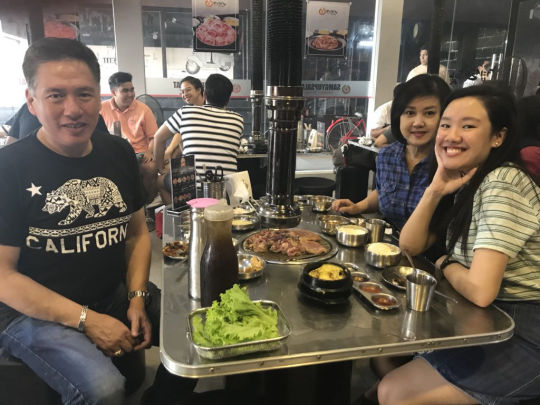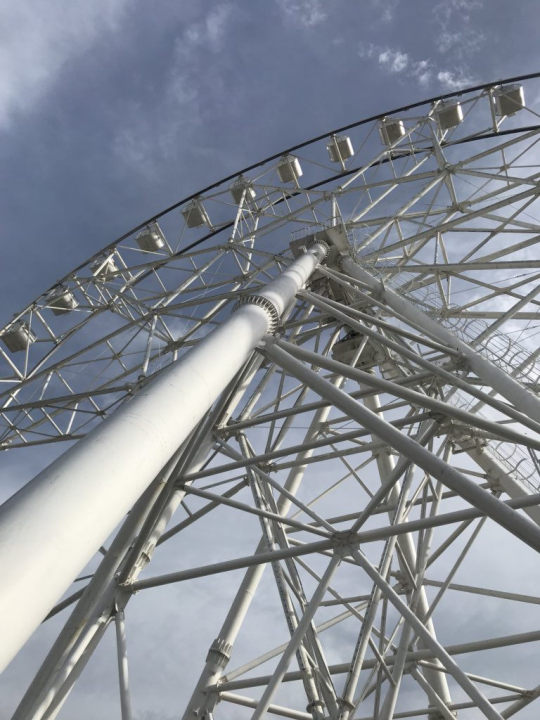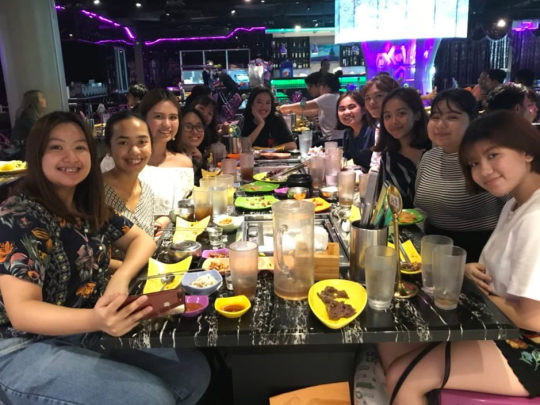#their adult selves. obviously. i have no interest in writing 12 year olds
Explore tagged Tumblr posts
Text
overwhelmed with feelings for kj b/randman. if i could ever figure out how to make her canon work to write in... well.....
#kj AND tiff. my best friends#their adult selves. obviously. i have no interest in writing 12 year olds#but the fun thing about their arcs is the time travel so my brain trying to figure out how to make sense of writing them is so 😵💫#[crickets bc no one watches p/aper girls]#anyway. happy pride to her#ooc.
2 notes
·
View notes
Text
I hate JKR and Drarry is my OTP
When I was a kid I adored reading, and I devoured new characters and stories. I read less and less over the years as one does because adult life is demanding. And then I very suddenly got interested in writing again in my adult life which lead me to reading again. I grabbed 4 books at a time from the library, read them on my commute, put together story ideas when they inspired me, then did the whole thing over again.
And then Covid happened (and I was in a lousy position because of non-covid things as well) and life was really fucking hard.
Suddenly the idea of consuming brand new media was overwhelming. I barely had the mental energy to do my job, or generally live my life. Becoming emotionally invested in new characters was just not on the table. So I became extremely nostalgic and threw myself into all the stuff I liked when I was about 12 (peak internet *rawr*) because it felt like seeing old friends which came with a low cost and big emotional reward.
When I was 12 Harry Potter was the absolute shit. All the cool kids shipped Drarry (but obviously we called it H/D). I went to the midnight release party for books at Chapters, I had a stone to commemorate Dobby in my garden, I had every Potter Puff MSN avatar saved on my computer.
To be drawn back to all that in the midst of JKR going on a seemingly never-ending transphobic rant was weird to say the least. When it started to become common knowledge that JKR was not the great person our pre-teen selves imaged, I thought it might be interesting to reread Harry Potter. I wondered if I a) missed any literary content as a child that could be fun to dissect later and b) if there would be any hints she had a shitty view of gender.
The answers were none whatsoever, and yes, tons, respectively. The world was inconsistent, the character motivations didn't always make much sense, the kids were in blatantly oppressive gender roles, and yes, it was racist. I remembered that even as a kid there were things I didn't like about it, but it was of such cultural importance I happily ignored the things I didn't like in exchange for revelling in the LiveJournals, and DeviantArts, and FFNs dedicated to HP.
And that's where I think the true magic happened. I have a theory that what pushed Harry Potter from a popular series to a truly household name was the community that was able to exist around it thanks to the internet as it was in those days.
Something that really struck me when I reread the books is how poorly developed Draco's character was. In my reading I expected to find a boy struggling to find his way, who was led down the wrong path, but here and there showed real capacity for change. Someone witty, and elegant, and who had the mark of someone who would be very charming if he wasn't an utter git. There was nothing of the sort; until book 6 he only appears in a few short scenes and doesn't have much personality at all. The image I had of him was one entirely built by a bunch of randos on teh interwebz that collectively decided to take all the parts they liked and throw away the rest and tell amazing stories of personal growth, and resilience, and love. I think that's truly remarkable, and absolutely beautiful.
This is what brought me back to Harry Potter fanfic. This is why in my covid-addled, anxiety-ridden, overworked adulthood I spend my me-time reading Drarry fics. I love you wonderful tumblrverse shippers and your refusal to let TERFdome take your optimism.
#I didn't know where else to say this#So here you go internet randos#Have a little view into my soul#Just some middle of the night thoughts#drarry#fuck jkr
6 notes
·
View notes
Text
18
Welcome to my first blog post as an 18 year-old! And yes, I am well aware that I can legally drink and could be sent to jail, thank you very much. (Not that I have any plans to, though.)
I reached this milestone in my life last July 5th. As I mentioned in an earlier entry, I decided to not go the traditional route and instead, opted for a trip to Korea last April and a week’s worth of festivities with family and friends.



I kicked off the celebration with lunch at a Korean barbecue place with my parents, then had a feast with my extended family (mother’s side) in Italianni’s.


I even got my cousin, Miguel, to go on with me on the ferris wheel nearby where I tried my best to admire the beautiful view of Manila Bay before us while screaming my head off.





For my actual birthday, I treated my closest friends from high school at yet another K-BBQ place for lunch, and then went to my favorite buffet place with my family for dinner. My friends Junelle, Danna and I also finally pushed through with our months-old plan of dropping by the karaoke bar relatively near to us, which served as a great release for pent-up emotions and a showcase of our non-existent vocal abilities.

This year, I also decided to go out on a limb and hold a project of my own. I was originally planning on giving away some of the old books I had piled up in my room to nearby orphanages, but with the time constraints I had, I couldn’t really afford to execute something so grand. So, with the help of my mom, I decided that it would be best to start small. We bought these tumblers from the nearby grocery and filled them to the brim with candies and chocolate bars, then gave them to the kids selling sampaguita at our church. I was really iffy about writing this part, because I know it’s easy to misconstrue my intentions for doing so: some people will probably just dismiss this as some put-on act of charity posted for clout. But, the experience was just so rewarding for me I had to. The children were all so appreciative, beaming at me, expressing their gratitude through belated birthday greetings and musings of how they could use my little gift for school – it kind of made me feel like my heart was on fire, but in the best way possible.
Anyway, now on to the standard realizations I make sure to include in nine out of ten posts.
This birthday in particular was a big deal for me, for obvious reasons. I had always regarded 18 as the age of independence and freedom: I equated it to having the liberty to do whatever I wanted, go anywhere I pleased with anyone at all, make the big decisions and know the answers to all the questions I’ve been asking my elders since I was a kid. I guess I forgot that I’m not the protagonist of the coming-of-age films I grew up indulging in, but a sheltered kid who has had most things done for her and thus has yet to acquire the basic life skills needed to survive The Real World. My parents said that I’m this way because they wanted to give me a life of convenience, and thus did anything that required me going out of my comfort zone, for me. All these years, I never found myself complaining about it or demanding that something be changed but for some reason, this stage of supposed adulthood has pressured me into thinking that there’s something terribly wrong with this because now, I have so much growing up to do.
Obviously, the biggest life change that I’ll have to deal with would be college: having to balance academics, extracurricular activities and different people in an entirely foreign environment sounded so terrifying for me. People would always tell me that grades have and could never be an issue for me: I was born the Smart Kid™ with a lot of potential, remember? I was generally a star student in all the schools I had attended, and everyone knew about it: I didn’t have to exert any effort to prove myself to those around me, because my grades did the talking. But, suddenly I’m about to enter this prestigious university with a rigorous screening process that takes in the Smart Kids™ from institutions all around the country. How am I expected to stand out in a place like that and get the Latin honors I can’t help but aim for?
Extracurriculars also have a huge bearing and apparently are an essential part of the whole college experience, which is weird to me since I’ve never really committed to a specific club all throughout my grade school and high school life. It seemed like more of a requirement to me than anything else, so deciding which one to join was like playing pin the tail on the donkey with my friends.
And, while I’m on that note: what about making new friends? I do appear to be outgoing and loud—especially if you’ve heard my piercing shrieks in my old Grade 12 classroom—but I’m only like that around those I’m truly comfortable with, and even that number has dwindled over the years. It’s hard to find people with the same interests as I do, and I’m growing more and more unsure of the fact that there are Ateneans who like K-Pop boy groups and laugh at the jeje memes I have in my camera roll. (I will cry if I don’t find anyone who can watch Japer Sniper videos with me.) I haven’t had to introduce myself to a new person in two years both IRL and online and I let them lead the conversation for a long while before I can think of warming up to them.
I also have to learn how to drive, which can come off as a surprise to anyone who’s known me for a while. I’ve always been the type to let go of the steering wheel and cover my eyes when the situation got out of control at the bumper cars. But, once I found out that ADMU isn’t actually the most commuter-friendly of schools, I didn’t really have a choice. On my first day of lessons, I was scared to my very core: my mind couldn’t stop bombarding me with stories of vehicular accidents and picture slideshows of cats that got run over. Although I did pass all four days and am now eligible to have my own license, I still have much work to do before I can take our Civic for a spin along Katipunan: please pray I learn how to parallel park without crashing into anything. I guess it would also be a bonus if I learned how to commute to and from places. I love going out, and I wish I always knew how to get to where I wanted to go and what mode of transportation to take instead of always relying on trikes and taxis all the time.
Since I’m of legal age, I’m also qualified to register to vote. I’ve started immersing myself in current events and politics a few years back, and I witnessed several people my age get shot down by adults when they did so much as express their opinions. “Masyado kang bata,” they’d argue. “Di nga kayo botante eh, wag na kayong makialam!” (But, the indifference of the youth would still be met with biting remarks like, “Wala na ba kayong ibang gagawin kundi mag-Internet? Magkaroon naman kayo ng pakialam sa nangyayari sa paligid!”) So now, I feel a certain kind of satisfaction in finally getting a say in who runs my country. But, at the same time, there’s also an intense kind of pressure since I am expected to discern which candidate serves the people’s best interests and hopefully lead us out of the downward spiral we’re currently making our way through.
It was only very recently—towards the start of the final month of my vacation—that I realized how stagnant I still was a person. Must be surprising for some of you. I feel like I somewhat project this image of being constantly put together. Very rarely do I let myself be vulnerable around other people. This is probably why every time I turn to someone to talk about my problems, I’m always met with reassurance: I, of all people, would have it under control, they say. I have absolutely nothing to worry about.
But, that’s the thing: when we’re on social media, we have this tendency to present only our best selves, turning our accounts into heavily filtered highlight reels. This is not only pretentious but toxic behavior, because of its failure to put things into perspective and show that everyone has their own fair share of both good and bad days. My Instagram feed may be its busy and color-coordinated self at the moment, but it doesn’t show the many nights I’ve spent crying because of how overwhelmed I was by this sudden surge in responsibilities and my inability to handle all of them. I mean, things can seem way beyond your control when your brain refuses to shut up and calm down.
I guess my failure to prepare for everything could be traced back to the beginning of this summer. In hindsight, the goals I had set for my four-month break were all very short-term and not exactly centered on self-improvement. I looked through the bullet journal I was keeping at the time, and found items like “clean my room”, “delete Facebook friends and Twitter followers I don’t interact with” and “buy a new study table” – one word for April 2018 Angel: why? I easily could have used the time to learn a new language or pledge to write 10 posts, maybe even pick up an instrument so I could have started a career as a Soundcloud artist and gotten myself a record deal instead of going to college (Mom, Dad, I’m kidding.) But for some reason, I didn’t even think of setting my standards that high. I spent a lot of time lying on my back, scrolling through the same old timelines several times a day as if the constant refreshing would bring anything of substance in my life.
It's much easier to let the regret paralyze me, to beat myself up for all the mistakes I’ve made and wonder why I didn’t do better. But, we all know that won’t help me get anywhere. As of now, I’m trying my best to be more vocal about my problems with other people so they don’t build up inside of me until I spontaneously combust. I admit I’m also quite the emotional person, so I really want to work on having a rational approach to whatever I’m going through.
I found this thread of healthy coping mechanisms and emergency plans to use during times of distress floating around. In case you guys are too lazy to click on the link, it basically says that you should first identify the trigger thought or whatever is sparking the negative emotions, identify the unhelpful thinking style that you are subscribing to and counter them through coping thoughts and actions to bring your mood back to the center. Twitter user thecolor_teal also says that one important thing to note is that you should never believe in your thoughts without critiquing them.
I’ve been doubling down on the worrying and channeling all that energy on pursuing other interests and planning my life out. I’m on my fifth book in the span of two weeks (I have a post coming up on this, so watch out!) and I just hit the 2k word mark on this post, so I can pretty much say I’m on a roll. I also came up with three main goals that I want to prioritize as I venture into this new chapter of my life. I read somewhere that publicizing whatever you want to work on, jinxes them in a way but since there’s no scientific evidence to back it up, I’m taking the risk. It could serve as a constant reminder of what I have to do, or pressure me into following through because I’ve put it up here to everyone to see: either way, I win, I guess.
1. Be more involved – maintain a firm stance of my own in issues concerning the country, give back to my community, continue to take genuine interest in the lives of those around me and do whatever I can to help them
2. Be more sociable – judge people less; get to know and interact with people from as many different social circles as possible; learn how to make the first move, engage in small talk (!!!) and not end the conversation with an awkward laugh
3. Be more street smart – be confident when on my own in public places, distinguish when I’m being fooled by people, learn how to get out of sticky situations without having to ask for help
I don’t exactly have everything down pat yet but at this point, it’s become somewhat comforting for me to think that I’m not expected to, and that no one my age knows exactly what they’re doing. We’re all clueless kids with no idea what the future holds and if we’re truly capable of handling it – we’re all hanging on to our empty attempts at reassuring ourselves. Anyone who denies this is probably just trying to make themselves feel better and I’d like you lot to know that we see through you! Despite the sheer hopelessness of our situations, I hope you all make amends with your right to not know whatever the heck you’re doing with your life right now and learn to trust the process. You’ve probably been through worse in the past, but here you are: beaten and bruised and still dusting yourself off from the last time life let you down but still alive and valid and fighting and that’s all that matters. We got this, fellow adult-er. And that is not to be mistaken for adulterer, by the way. That’s not something we should strive to be.
#personal#very very VERY personal#adulting#angeltriestoblog#eighteenth birthday#it's 1am i have no idea what these tags are sorr
1 note
·
View note
Note
What is Sporking? And I'm interested to know more about badfic!
Sporking is one of those things that I’m really, really glad fell out of favor years ago. It was essentially the group mocking of (whatever they considered to be) badfic, often in a very public forum. They’d basically post badfic and then mock it on a line-by-line basis. People would either post a sporking (as in, a badfic they’d already gone through and mocked) and people would join in in the comments or they’d post a badfic and invite a lot of people to make fun of it all at once. Things they’d mock would range from SPAG to ships to tropes to writing foibles, etc. It typically got really ugly really fast, and let’s all be real with each other here – most of what they made fun of was written by kids. These were usually posted publicly (and people invariably brought it to the mocked writer’s attention) but there were also some private communities where people just…idk, furiously masturbated over their own perceived superiority in a small group and told themselves it was fine because there was a lower chance of the writer in question finding it.
Sporking was shitty on really a number of levels. I mean, it was mean. Obviously. Fandoms often got really cliquey around this kind of thing. (Before AO3, in the time of private fandom-specific archives, there were some fandom archives that did “quality” tests before allowing people to post there. They were about as subjective and stupid as you’d expect.) A lot of beginner authors quit fandom over this. I mean, public humiliation – or even just the fear of public humiliation – will do a lot to dissuade you from posting anything you worry isn’t good enough. So you’d get, like, 12-year-olds posting shitty fic, getting made fun of mercilessly, then leaving fandom and never writing again. A lot of these writers just needed age and especially experience, and they definitely never got the latter because they were shunned out of fandom. It was a fucking shitty thing to do. And everyone knew that private sporking communities existed, and that just made people paranoid and more leery about posting things.
Also? Sporkings just weren’t fucking funny. Everyone thought they were MST3K, but most of them were just annoying. There’s that part at the end of Ratatouille,
“In many ways, the work of a critic is easy. We risk very little, yet enjoy a position over those who offer up their work and their selves to our judgment. We thrive on negative criticism, which is fun to write and to read. But the bitter truth we critics must face, is that in the grand scheme of things, the average piece of junk is probably more meaningful than our criticism designating it so.”
And I think that really applies here. Most sporking was just derivative and mean spirited and added absolutely nothing to fandom except hurt feelings and paranoia. Most people grew out of sporking tendencies by like age 15 (right around the time you realize the difference between honesty and being a shithead) but there were plenty of adults who engaged in sporking (and still do, frankly) and I have no respect for them.
Sporking and flames were things that you were just kind of expected to put up with back then. There was really this air of “well, if you put a piece of fiction on the internet, that’s just the risk you need to run, and if it’s shitty then you deserve to be told that it is”. As far as I know, I was never sporked (thank god; I think I probably would’ve stopped writing for good) but I did get flamed fairly often as a tween. lol. And like… Here’s the thing. There’s a huge difference between posting a negative review of something professionally created and posting a sporking in fandom. Those are professionals, they are asking money for their work, and part of being a professional is sometimes painful criticism. These are often people with a lot of power and money behind their stupid decisions. (This is also why I tend to be kinder to super indie films than ones from big studios or high-powered directors; the sheer magnitude of resources thrown behind shitty mainstream movies pisses me off.) But sporking was something that was always done intracommunity. This was making fun of inexperienced, often young, always amateur fans, and it was doing it in-house. Like Stephenie Meyer got mocked for Twilight, but she could comfort herself with her millions. The badfic writers on fanfic communities were just getting shamed and humiliated while engaging in a goddamn hobby. It was bullshit.
All that said, like. There’s a difference between making a community for making fun of badfic and just privately venting in IMs with your friends. And boy did you have a lot to vent over back then. I don’t believe in publicly mocking specific fics (especially if you have any real audience) but I am 1000% in favor of mocking fic trends that were popular back then. And I’m gonna make a separate post to talk about those in just a second.
6 notes
·
View notes
Text
Marijuana Conspiracy
SHOULD anyone still believe that the use of marijuana is spreading because of the Mafia conspiracy or a Communist plot to sap the will of our youth, let me tell of a 40‐year‐old who tried it for the first time this summer. He is a major figure in the advertising world; but despite that fact, he seldom drinks liquor and never smokes cigarettes.
What led him to pot? His 14‐year‐old daughter gave him three miserably rolled joints for a Father’s Day present. He smoked only one of them in my presence and had to be taught by the others in his room how to inhale. The thing burned like a small bonfire (no one had told him to lick the cigarette before lighting it), making little explosions (un cleaned marijuana contains seeds that sometimes go “pop” when fire hits them) as the gentleman struggled to ���swallow” the smoke. He nearly choked. I doubt that he’ll ever go near it again.
But he has now become part of the most rapidly growing estimated statistic officially issued by the United States Government. Last October, a Na tional Institute of Mental Health pamphlet made the “conservative estimate” that about 5 million juveniles and adults had used marijuana at least once. Five months later, in March, another N.I.M.H. pamphlet said that “more than 8 million people have used the drug.” Then, a month later, the N.I.M.H. reported to Congress that the number “conservatively was between 8 million and 12 mil lion.” In June, Dr. Stanley F. Yolles, then director of N.LM.H., used the figure 20 million. A standard projection curve suggests that by now one could easily find someone at N.I.M.H. willing to go for 25 or even 30.
OBVIOUSLY, the N.I.M.H. figures rely on some wild guesswork, but no one at all awake through out the last decade can doubt the direction in which they point. We Americans are using a lot more marijuana than we used to, and we will be using a lot more than that. It is now the very rare college student who has never tried the drug.
In New York and the outlying areas where day time New Yorkers go to sleep, high‐school students complain that they must either smoke or learn to enjoy solitude. A ninth‐grader in Scarsdale High School estimates that 50 per cent of her friends have tried marijuana and says that not infre quently it is smoked in the school (“like during fire drill, when we’re jammed into the vestibule between the cafeteria and the outside door”). She knows of seventh‐graders in Scarsdale who are smoking; children in New York private schools are aware of its use in sixth grade. Juvenile‐delin quency cases involving possession of marijuana get into the papers under datelines from Los Angeles to Hyannis Port.
This progression of marijuana down the age scale is extremely disturbing, and properly so, to adults. Marijuana, psychiatrists inform us, is a euphoriant and can be used as a rigid defense against the problems of growing up. It is unques tionable that a certain number of children have seriously damaged their personal development by habitually turning off their problems through drugs and never learning to solve them. Thirteen‐year‐olds who turn on at recess probably do them selves no more harm than 13‐year‐olds who get drunk at recess, but psychiatrists tend to find the prospects for both quite dismal.
In conjunction with that worrisome use of mari juana by younger and younger children, however, is its use by older and older adults. Marijuana long ago bridged the generation gap and has since been streaming across like the First Army at Remagen.
Undoubtedly, the most important reason for the sudden outbreak of marijuana use in the adult working world is that young people have grown older. The pot‐smoking art student of 1965 is the pot‐smoking art director of 1970. The pot‐smoking coed of last year is today’s pot‐smoking “assistant buyer of better dresses.” And Seventh Avenue is adjusting to her.
As she explains, “You go into a showroom, and there’s a straight set of salesmen for the old ladies, and they offer the old ladies a drink, but there are also hip salesmen, guys with real long hair and groovy clothes; and they just take you in the back and turn you on. In some of the houses the design ers, the models, everybody is spaced out of his mind. And sometimes they lay dope on you. They’re very cool about it. They come over while you’ve got your book out and you’re writing orders, and they say, ‘What do you do for kicks? Do you get high? I’ve got some very interesting stuff here,’ and they give you an ounce.”
A lot more marijuana‐smoking among adults can be explained as experimental in nature. As the father of three teen‐age girls recently told me, “I’ve now tried pot twice, just to see what the girls are up to. I wanted reassurance that it wouldn’t kill them.”
ONE would have to be a man of very little curiosity not to wonder what the mari juana experience is like. Enough authorities have now indicated that the drug does no apparent harm that the risk in trying it seems to many to be solely a legal one, and people do seem willing to risk the law’s wrath on this issue. A Nobel laureate re cently asked psychiatrist Lester Grinspoon, an advo cate of legalized marijuana sales, whether he could pro vide him with a few joints. Needless to say, Dr. Grin spoon couldn’t and didn’t; but the intellectual level of his petitioner was no surprise to him. He lists among the more enthusiastic older smokers in the Boston area “social scien tists and academic people, astronomers and physicists.”
But no single explanation such as “curiosity” covers the thousands of adults who five or six years ago feared and shunned marijuana but use it today. I’ve recently met en gineers, Wall Street brokers (one of whom, three years ago, threw his best friends out of his home for offering his wife a marijuana cigarette —the break between the two families has never been re paired) and film editors, all of whom were in their 30’s before trying the drug, but who now would rate them selves as regular users. One film editor uses it in place of all other possible drugs. It is his first cigarette of the morning, his coffee break, his martini, his sleeping pill. He nevertheless manages to function.
Statistics don’t exist on this matter, but it is this observ er’s impression that in New York marijuana is being used most widely by adults in the arts and the commercial arts, in the teaching profes sion (where it is argued that one could not conceivably understand the students if one did not grasp their highs), and in the “helping” profes sions. Four members of the New York Psychoanalytic So ciety recently agreed on the estimate that 95 per cent of their colleagues in their own age group (between 35 and 45) had experimented with marijuana and that many continued to use it from time to time. Moreover, to the best of their knowledge, all the psychiatrists under the age of 35 whom they personally knew, and certainly all of their own psychiatric resi dents, smoked pot regular ly, many of them daily Knowl edgeable Bostonians suggest that their psychoanalytic com munity is equally turned on.
The smoking of marijuana, in other words, can no longer be interpreted as a sign of alienation. Great numbers of pot smokers are very nicely adjusted to our society. They make love; they make money; and for that matter, reports from Vietnam indicate, they make war. (A study in Febru ary showed that one out of five front‐line soldiers smoked marijuana every day.)
THIS wide use of marijuana is plainly a new phenomenon, at least in the middle‐class East Coast culture. (On this sort of fad—if that is what it is—we generally tend to be two or three years behind California, two or three years ahead of Kansas.) It is caus ing people to ask themselves rather serious questions about their own morality and values. It is changing the nature of many social gatherings and, more important, it is affecting many social relationships, in cluding those of parent and child, husband and wife.
I have recently been talking with middle‐class adults about their own attitudes toward marijuana. I wanted to know why they were using it or not using it, and what it was do ing to their lives.
Marijuana is not new to all members of the middle class. Its use by some of them in the past, however, had something to do with slum ming. Throughout most of its long history, marijuana has been a cheap pleasure of the most downtrodden poor of the poorer nations. (“In Moroc co,” said a man raised there 50 years ago, “we’d see the servants smoking hashish [a stronger form of marijuana]—they were forbidden to smoke in The house—but no one who had servants would smoke.”)
When marijuana began to enter this country from Mex ico in the nineteen‐twenties, however, young people in the Southwest found it not only cheap and abundant, but good for laughs at parties. It is not at all hard to find people with pleasant memories of using “the weed” 45 years ago in Albuquerque. It is even easier to find others reminiscing happily about smoking “tea” in Greenwich Village in the thirties outside of Bohemia, marijuana tended to be found mostly in the black slums, where a number of white middle‐class boys ran into it because of their love for jazz.
For almost everyone who smoked, decades past, it was simply a means to a good time. “We didn’t make a mys tique or a religion of it,” said a woman editor who smoked in the nineteen‐thirties. “We were left‐wing artists and writers not at all mystically oriented.”
“It was a form of naughti ness,” explains a female phy sician of her high‐school days in the Village in the early nineteen‐fifties. “I went out with a black guitar player who brought it down from Harlem. He thought it made him Segovia; I just thought it was fun to do something il legal. But you know, I was too young to drink, too, and it was just as big a thrill to go into a bar and get served Scotch.”
“Also, adults then didn’t seem to get as clutched by the idea of their kids smoking pot as they do now. When I told my father, all he said was, ‘Just stay out of auto mobiles. The driver’s timing might be off.’ That was the extent of it.”
Many marijuana smokers of 20 or more years ago gave up the drug when they “no long er had friends in the jazz world,” or “went off to col lege,” or found that they had to put any effort at all into getting it. Many marijuana smokers appear to take pride in the fact that they have never bought it. Now that marijuana has become so easily available, many smok ers of years ago have returned to it.
It certainly can’t yet be said that marijuana has been accepted by the New York middle‐aged middle class. As was the case some years ago with the young, it is general ly thought to be the more politically progressive and possibly more intellectual of their elders who are currently smoking. Recently this writer met with a group of 30 Long Island parents (by ac cident almost all liberals) to discuss the pot situation on the North Shore and found them in agreement that in their part of the world there are absolutely no right‐of center adults who use it.
Psychoanalytic evidence might back up this concept. The four analysts with whom I’ve discussed the matter de scribe those among their pa tients who are most against marijuana as “rigid‐moralis tic,” “struggling to control their own impulses,” “meno pausal churchgoing,” “the peo ple who oppose sex education in the schools,” “the same people who never talk about sex.” But being in analysis at all suggests a certain adven turousness; and one analyst said, “Almost all those I’ve seen in their 20’s and 30's—even the conservative, rigid ones—have tried both sex and pot, though they might feel a bit guilty about both. It seems to me that my adult patients use pot very much the way I do: occasion ally at a party or just for the fun of it. They don’t use it the way the kids take it, which is every day or to solve prob lems or to deal with tension.”
IT does not really make sense, however, to view the marijuana issue as simply age related, or political, or a sign of good or poor mental health. Many people who oppose mar ijuana are frightened of it for intelligent reasons. Marijuana does have powerful effects on human beings. No one knows precisely how marijuana cre ates its effects and there is no certainty that its action is harmless. There have been sci entific reports from Arab coun tries describing a form of psy chosis traced directly to the use of hashish.
Most American researchers at the moment doubt the ex istence of a syndrome specific to the use of cannabis, and it is hard to find a New York psychiatrist who believes in it. This can be frustrating to any one who is convinced he is suffering from it. A young writer, who is awaiting the publication of his first novel, recently described his symp toms to me as “feeling as if I’ve been stoned for a long time, and now I’m almost down but not quite, and I’m tired, and I have a kind of trippy feeling and a slight dizziness; and nausea keeps coming and going. This has been going on for six weeks.” He blames it on three years of daily pot‐smoking, claims to have friends who have simi larly suffered from long‐time heavy marijuana use (and they have all given up the drug as a consequence) but who have not yet been able to come up with a physician who would blame their symptoms on anything more than “an xiety.” Said the writer, “The last fellow I saw told me that once my book was out and well‐reviewed I’d be my old self again.”
ALTHOUGH doctors, for the moment might tend to feel the cannabis psychosis is mythical, they do seem to agree that the use of mari juana could very well trigger a psychotic reaction in a person whose ego is already shaky. It might, however, be the case that this problem, too, is self‐limiting. A study that Dr. Grinspoon made of 41 acute schizophrenic college age patients admitted to his research ward bore out an im pression that he’d had before “that schizophrenic and pre schizophrenic people tend to stay away from the drug. Only six of them,” says Dr. Grinspoon, “had ever used marijuana, which is remark ably few for that age group. In four of them, it was clear that the onset of the psycho sis was so removed in time from the use of the drug that (the two) wouldn’t have been related; in the last two I was unable to say one way or the other. I couldn’t implicate or exonerate the drug. It stands to reason that a drug like this might precipitate psychosis. But putting it into perspective with other things, if you get someone who is psychosis prone or is prepsychotic, any number of things might do it, such as, let’s say, an alcoholic debauch, a severe automobile accident, the loss of an im portant loved one….”
Dr. Grinspoon himself might be part of one of the more im portant influences leading adults to try marijuana for
It turns some people off. It turns some marriages off the first time. A highly au thoritative article of his in last December’s Scientific Ameri can, which surveyed world scientific literature on the sub ject of marijuana and essen tially found it less harmful than either liquor or tobacco, has been mentioned to me by at least two people as a fac tor that encouraged them to dare try the drug.
Marijuana, in other words, has been getting a much‐im proved press these last few years. Although, many people ask quite sensibly, “Why, with all the problems we have with alcohol, do we need another socially acceptable method for turning off our problems, act ing inanely, and killing our selves in automobiles?”, vir tually everyone, smoker or nonsmoker, under the age of 40 and reasonably educated with whom I’ve talked, is aware that marijuana is not a narcotic, is not addictive, does not produce hangovers and is furthermore considered, in some circles, chic.
IT became evident in talking with middle‐class adults that the main problem they see in the use of marijuana is that it is illegal. About half of the group of 30 I talked with in Long Island had tried mari juana. Some of them had chil dren too young to be interest ed, but none of them had told their children that they had used the drug.
Some felt that they would make that confession when a proper occasion arose. Many of these parents had very carefully worked‐out speeches to explain why “as adults we can smoke but you as a child cannot.” In general, they go: “There are things that physi cally and emotionally are harmful to children. When you’re mature enough, you can drink, you can drive an automobile, you can make love and you can use mari juana, but all of that can cause trouble for a 13‐year‐old.” Most people rehearsing such speeches feel that the legalization of marijuana with prohibition of its sale to minors would make their case more convincing.
Most smokers found the very concept of letting their children know that they had broken this law disturbing. In New York City, I did meet marijuana ‐smoking parents who have told their children they smoke, in hopes, one ex plained, “of making it seem less exotic,” but at the same time, I’ve met very few par ents who have actually smoked in front of young children. A comment I’ve now heard many times is, “We wouldn’t make love in front of them.” The connection between the two concepts remains elusive to me. But clearly this is a worri some question in many homes.
Although few adult smokers choose to smoke in front of their teen‐aged children, teen agers have a tendency to find out about such parental hab its anyway; and the use of marijuana by the older gener ation is not totally loved by the younger ones. A Westport commuter told me of a pro gressively reared 16‐year‐old who became infuriated on walking into her house and finding her parents and three other couples turning on. She accused them of being hypo crites, a favorite accusation by the young, and had to be reminded that her parents had never complained so loudly when she came in that way. Nevertheless the next day she announced that she was off marijuana for good. She explained, “If you and the rest of those sellouts are do ing it, there must be some thing wrong with it.” She did indeed quit; her thing is now macrobiotics.
But like it or not, the young will simply have to get used to the fact that there is no youthful monopoly on hedon ism. Like high‐school students who fear being left out, par ents, too, enjoy good parties, and in New York, these days, they frequently involve mari juana. Recently, for example, a New York editor found that he was excluded from a grass smoking dinner party because he had let slip that he’d never learned to inhale. To make up for the slight, his hostess‐to be invited him to a second dinner party with a bunch of drinkers, but he still felt that he’d missed the real fun.
He was, probably, just as well off, for as anyone who has ever attended one knows there is nothing more dismal than a pot party when you’re straight. There is no one type of pot party. Marijuana is easily titrated. As a study re ported to New York’s Mayor La Guardia in 1944, most ex perienced smokers know just how high they like to get, and when they reach that point they stop. For most adult smokers, that point is well within their own ability to snap out of the high, behave rationally and carry on a fair ly normal conversation. One can find people smoking at cocktail parties behaving like everyone else in the room.
But one characteristic of marijuana is that it turns peo ple thoughtful and frequently when it is smoked in small groups, people tend to grow quiet, listen to the music (a common adult reaction is, “I never understood rock music until I turned on”) and inves tigate their own fantasies. Such quiet gatherings can drive the nonsmoker to new extremes of boredom.
On the other hand, mari juana can make such state ments as “Please pass the mustard” seem fraught with hidden meanings of oracular import, and the struggle to decode them can break up everyone in the room. Abso lute uncontrolled hilarity is one of the great and mysteri ous pleasures of group mari juana use. At times it is al most clear what is knocking everyone out. (An event that apparently brought down the house at one party was a young lady’s forgetting that she had already eaten dinner and announcing that she was starved; at another party it was a young man’s holding up a roast chicken and remark ing that it looked like Bran cusi’s Bird in Space—every one agreed with him, then cracked up.)
In general, what it is that amuses everyone is a total mystery. No one knows what anyone else is laughing about and the attempt to explain only makes it seem funnier—if you happen to be high. The fellow who is not finds the entire situation at the emo tional level of a nursery school, and stomach‐turning. He often starts smoking out of self‐defense.
But gatherings solely for the purpose of smoking seem not to be part of the adult, regular smoker’s world. He is far more likely to use mari juana precisely the way he previously used alcohol, and there are now middle‐aged circles in which the drinking of liquor has almost disap peared. As a 40‐year‐old fin ancier told me over a glass of sparkling Perrier water, “I once had a great fondness for icy martinis. They had many good qualities. Of most im portance, they were lubrica tors of social interaction and the alimentary canal.
“Well, I can hardly remem ber the last time I saw a drink at a dinner party. In fact, I can’t remember the last time I had a drink.
“You know, the homes to which I get invited aren’t that remarkable. I’d say they’re upper ‐middle ‐class, typical East Side Manhattan, South Shore folks who fear drug abuse, would shun cocaine and run from LSD, but it is a rarity in their homes that I’m not offered pot in beautifully rolled joints. I ’d say that there’s a cut‐off date in this: I don’t see pot in the home or anyone older than his early 40’s unless he’s a photogra pher or an extraordinarily wealthy unreconstructed Bo hemian.
“But it seems to me that there will be an ever‐greater tendency for hostesses of all ages to provide pot as an al ternative to cocktails as the word spreads that if people turn on before dinner, there are no bad meals.
“Last weekend my wife prepared leg of lamb, casse role of rice and mushrooms, salad and cheese. We had two other couples to dinner. The leg of lamb was huge. We ex pected it to last us through Sunday. Every bit of it went. Everything went. The brie was snapped up as if there were imminent danger of war with France. When dieting, I can not smoke before I dine.
“I think,” the marijuana smoking venture capitalist went on, “that it’s ridiculous to fear that pot leads to other things, at least not for grown ups. Most pot‐smokers, I find, are serious‐minded family peo ple, politically oriented, and they smoke pot because it is a deliciously communal thing to do and it tends to sharpen everything from movies to sex; but the idea that if this is terrific, wouldn’t cocaine be better, never occurred to them.‘’
SINCE marijuana smoking is so new to the middle class, there is still a certain amount of confusion as to how one should serve it, use it, and be have under its influence. But certain rules seem to be evolv ing.
In general, in relaxed cir cumstances, it’s traditional to pass around a single mari juana cigarette The stuff is still somewhat scarce. By pass ing it around, more smoke goes into people and less into the air. But there is something about passing around a single joint at a dinner party that resembles passing around a single glass of Scotch. Host esses are now spending after noons with their rolling ma chines making enough joints to turn on three times the number of guests expected, if they smoked economically.
The question of marijuana high conversations is an in teresting one. On first turning on, almost everyone is in need of guidance. The experience is subtle, and the novice smoker needs someone to ex plain to him what it is that he is feeling and how to ride with it rather than fight it. Paranoid reactions are com mon on first smoking. Be cause of that, old‐time smok ers tend to talk new ones through the experience. That, however, is a training process; it is not done in public, for to most adult smokers it is a bore.
In fact, in adult smoking circles it is now considered bad form to discuss (as is common among new smokers) the quality of the pot, the town in Mexico from which it came, or precisely what it is doing to one’s head. One does not ask others if they are feeling it. One does not say, “Oh, wow,” or “Dynamite!” If it leads one to a feeling of unity with the universe, one keeps it between oneself and God.
The people who today seem most excited about marijuana are those who have gone for years detesting alcohol yet envying people who seemed to enjoy it. “I’d go to parties, and hold one drink all night,” a housewife in her mid‐30’s told me. “I hated the taste of alcohol. And it made me diz zy, and it left me with a hangover. Marijuana was a godsend. It’s much milder than liquor and much pleas anter, so I carry my own. When everyone else drinks, I open my cigarette case, pull out a joint; and everyone is very impressed: ‘Barbara the swinger!’ But I just smoke enough to get a slight high. I don’t really like the super‐boo that takes the top of your head off. I just want to feel more relaxed, more in the mood for a party. I love it.”
This use of marijuana, as if it were Scotch, to get through parties, however, does not ap peal to everyone. For ex ample, says one typical long time, weekend marijuana smoker, “I can’t stand using it except with my husband and sometimes close friends. I think it’s an intimate experi ence. You see, alcohol takes you out of yourself. It makes you cloddish and indiscrimi nate. Everybody’s your bud dy. But grass gets you into yourself. It heightens what ever it is you really feel, and if you’re with someone you don’t like, or with someone who is acting phony, the grass makes you really hate them.
“Grass sharpens things. The ugly gets uglier—you can’t stand to listen to bad music or a raucous voice—but the beautiful develops subtleties. I personally never see colors at all; I couldn’t tell you the color of your eyes; but on grass all colors are amazingly vivid for me.
“And I really have touch ing, personal, mysterious ex periences on it. An example?
“Well, I was walking around the block very high with a close friend one night, and suddenly he knelt down and put his arm around a fireplug. Well, you see, I found that touching, terribly significant. I still do, but I can’t say why.”
There are people who find that marijuana causes prob lems in their marriages. As one psychologist says, “Mari juana leads you to pick up a lot of non‐verbal signals that you normally don’t notice and that’s not always good for a marriage. One of my patients has been getting along for years with a very minimal sexual life. She began to smoke pot, found that it turned her on sexually, and did nothing at all to her hus band. It became completely clear to her that he didn’t want her, she didn’t want him.”
Many pot smokers insist that the drug clearly affects their sex lives. A study made of 200 marijuana users by sociologist Eric Goode showed that 68 per cent found that marijuana increased their sex ual enjoyment and 44 per cent claimed that it increased their sexual desire. A good number of pot smokers with whom I talked insisted that it im proved their marital relations, but others claimed that it cut out sex entirely by putting them to sleep.
MARIJUANA, it may be said, is now firmly rooted in our society. It helps to produce good times for influential peo ple. Unless it should be proved that it seriously harmed ev eryone who smoked it, it is unlikely that the growth of its popularity could be halted. Even then, it is not certain that the American public would not accept it as it has accepted tobacco and alco hol.
Past attempts to stop the flow of marijuana into this country either came to very little or have proved actually harmful. Last year’s “Opera tion Intercept,” along with causing the most massive traf fic jam Mexico has ever ex perienced, did create a na tionwide marijuana “famine,” but it also led gentlemen farm ers throughout the nation to lay in crops of their own. Most American marijuana is of poor quality, but says one can nabis horticulturist, “We’ve only begun to research the matter. Consider how long it took to produce a drinkable New York State champagne.” Last summer’s marijuana fam ine had more serious conse quences as well: with the rela tively mild marijuana denied them, many young people pushed on to much stronger and more dangerous stuff.
Ours is indeed a drug culture, and marijuana is generally the second or third drug (after cigarettes and alcohol) tried in a progression that can lead to disastrous addictions and ruined lives. The middle class is for the first time becoming aware of the drug menace that has so long plagued the black ghettos, now that heroin is beginning to appear in its own colleges and high schools. Pressure must surely soon build up to redraw lines between what is acceptable and what is for bidden in our drug‐taking society. But this time, let us have the sense not to misrepresent what we are doing. As Dr. Grinspoon points out. “Kids who feel lied to about marijuana’s dangers tend to assume that they are also being lied to about LSD, and cocaine, and heroin.
https://cloudfather.tumblr.com
CloudFather
0 notes